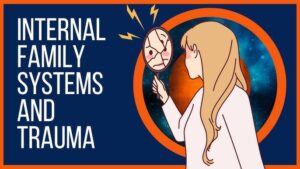EXPOSURE AND RESPONSE PREVENTION (ERP)THERAPY FOR OCD
What is OCD?
OCD stands for obsessive-compulsive disorder that instantly rings the bells of it having to do with washing hands repetitively or engaging in hygiene practices. These are the classic examples that have been overused of late that core understanding of OCD is sometimes misconceived.
This hasty generalization creates the necessity to explain what OCD is truly in clinical terms. This is a mental disorder that consists of obsessive or excessive thoughts leading to compulsive behaviors. This correlation inevitably impacts the routine of an individual and many other facets of life.
This often stems from irrational fears that lead to compensatory behaviors to combat these unreasonable thoughts.
Common symptoms of OCD
There are a set of three symptoms that play around often simultaneously in an individual. These include the following:
- Obsessions: These are unnecessary and mostly distressing thoughts that one struggles to let go as they replicate an internal urge.
- Emotions: These obsessions are linked with feelings like distress or anxiety making it all the more difficult to go past them.
- Compulsions: In order to respond to the feelings stated above that are triggered by the obsessions, one actively engages in any repetitive behavior or mental act.
OBSESSIONS: Obsessions can be of any sort and any human being is capable of having occasional unpleasant thoughts such as growing paranoid on having checked the house for being locked or not more than once. These are normal instances however, when these thoughts are persistent enough that they explicitly bother an individual getting in the way of daily mundane chores, it’s a clinical issue to be dealt with.
COMPULSIONS: These are repetitive behaviors that inevitably form a pattern and act as a compensation to tackle the intrusive thoughts. There is an excessive need for this behavior to take place, almost a disaster alert kind sensation in order to resume living normally.
What is ERP treatment for OCD all about?
ERP therapy for OCD works tremendously well. This has been proven and holds solid empirical backup.
ERP therapy like the name suggests is the capacity of an individual to navigate through his or her irrational fears facing them one on one and resisting the otherwise natural reaction from occuring.
How does ERP work as a suitable treatment for OCD?
This is done in steps, almost gradually deescalating the thought patterns and eventually desensitizing the whole experience so, the individual with OCD is able to now be in this setting and not tremble and perform the neutralizing behavior which are the compulsions that follow post the obsessive thoughts.
For instance, the obsession with orderliness and perfection and so, the behavior that follows may include setting up all things in almost perfect symmetry or making sure the sheets on bed stay ironed and so on and so forth. This can be dealt with by ERP by gradually exposing the individual to some sort of clumsiness and not letting them fix it instantly, so the internal battle continues and eventually fades away over multiple trials of the same scenario. This is a long term process and never happens overnight which must be taken a note of.
Techniques of ERP:
ERP treatment for OCD works in a way that regulates your body over time to get used to the environment around. There are several techniques that come handy which include the following:
- FLOODING: This is almost like jumping into a pool of cold water and suddenly recognising the switch of temperature that either facilitates one into swimming through the cold and sinking through it all. Flooding fits exactly with this analogy for OCD treatment as it is all about overdoing it to let the individual recognise the normalcy of the stimulus whatever that is. For instance, holding a fear of contamination with germs and washing hands over and over again to avoid the imagined consequence of it, contacting germs.
- EXPOSURE: Exposing the individuals towards their nightmares to relive them but not respond by starting slow.
- TOLERATING UNCERTAINTY: this is about being able to come in terms with the discomfort of the entire situation and easing it out with the triggering stimuli across several rehearsals.
Hence, ERP treatment for OCD clients tends to pay off when done effectively.
Why CoachForMind?
- Experienced Psychologists: We are a team of licensed RCI-registered clinical psychologists. Our team is well-experienced in various forms of therapy such as CBT, DBT, Narrative Therapy, and other therapeutic techniques such as ERP treatment for OCD
- Personalized Approach: We are dedicated to treating our clients in the best-suited way, carefully curated as per the client’s needs, and adhering to one-on-one, client-centered therapy.
- Scientific Techniques: Our treatment plans and therapeutic methods are based on highly researched scientific findings such as CBT, DBT, and Narrative Therapy among many other therapeutic techniques used in art therapy counselling.
- Quality service: We at CoachForMind ensure quality services in our treatment regime and therapeutic approaches. Our clients hold most value to us, so we ground our techniques in empathy while maintaining professionalism.
For more information, please visit our website or contact us directly at coachformind@gmail.com








